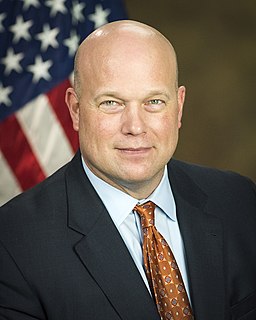A Quote by Bart Chilton
I believe that there have been repeated attempts to influence prices in the silver markets. There have been fraudulent efforts to persuade and deviously control that price. Based on what I have been told by members of the public, and reviewed in publicly available documents, I believe violations to the Commodity Exchange Act (CEA) have taken place in silver markets and that any such violation of the law in this regard should be prosecuted.
Related Quotes
If anybody has any idea of hoarding our silver coins, let me say this. Treasury has a lot of silver on hand, and it can be, and it will be used to keep the price of silver in line with its value in our present silver coin. There will be no profit in holding them out of circulation for the value of their silver content.
Gun control laws don't work. What is worse, they act perversely. While legitimate users of firearms encounter intense regulation, scrutiny and bureaucratic control, illicit markets easily adapt to whatever difficulties a free society throws in their way. Also, efforts to curtail the supply of firearms inflict collateral damage on freedom and privacy interests that have long been considered central to American public life.
The single most significant change has been the globalization of labor markets. Product markets - trade in goods - have been globalizing for years. But now, with the reduction in communication expenses and the building of all sorts of IT infrastructure, essentially any job can be done almost anywhere.
For equity markets, the combination of low interest rates, strong economic growth and low inflation has proved very beneficial, with global share markets rising solidly in each of the past three years. This has been underpinned by strong growth in profits so that, notwithstanding the rise in share prices, P/E ratios have been declining on average.
To a proprietor of a mine, the silver money is a produce with which he buys what he has occasion for. To all those through whose hands this silver afterwards passes, it is only the price of the produce which they themselves have raised by means of their property in land, their capitals, or their industry. In selling them they in the first place exchange them for money, and afterwards they exchange the money for articles of consumption.
There is no doubt in my mind that as central banks begin to abandon the dollar, there will be an enormous amount of monetary demand for silver and the silver ratio will plummet. If you look at all of the monetary crises over the last 100 years, any time that there has been even a whiff of a collapse of the dollar, the silver ratio has soared.
If we look to the answer as to why for so many years we achieved so much, prospered as no other people on earth, it was because here in this land we unleashed the energy and individual genius of man to a greater extent than has ever been done before. Freedom and the dignity of the individual have been more available and assured here than in any other place on earth. The price for this freedom at times has been high, but we have never been unwilling to pay that price.
Obamacare's not imploding. The main goal of Obamacare was two-fold. One was to cover the uninsured, of which we've covered 20 million, the largest expansion in American history. The other was to fix broken insurance markets where insurers could deny people insurance just because they were sick or they had been sick. Those have been fixed, and for the vast majority of Americans, costs in those markets have come down, thanks to the subsidies made available under Obamacare.































